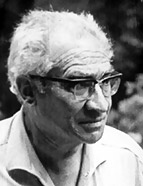

Flausino Torres is among the intellectuals whose aspirations were thwarted by the machinery of the Estado Novo regime. On suspicion of being an enemy of the regime, he was barred from holding any academic position, even from teaching at secondary schools. As a result, he found himself consigned to a marginalized life, both intellectually and physically, until he ultimately decided to go into exile. Such was the turbulent journey of this historian.
Born in Beira Alta to an unemployed mother and a father who was a cavalry Sergeant-Major and a staunch monarchist, Flausino Torres completed his primary and secondary education in Viseu, following a brief stint in a seminary, where he ultimately rejected the ecclesiastical path. In 1925, he moved to Coimbra to study at the Faculty of Arts , enrolling in the History and Philosophy programme. Early in his university years, coinciding with the onset of the military dictatorship, Torres became politically active. A republican aligned with leftist ideals, he served as Librarian-Director of the Coimbra Academic Association and was also a member of the Masonic lodge A Revolta [The Uprising] until the closure of secret societies in 1935. By 1932, police had identified him as a communist, despite his lack of affiliation with the Portuguese Communist Party. That same year, upon completing his degree, Torres began working at the University Press, but after its closure in 1934 for political reasons, he resumed his teacher training, completing his teaching internship at the Colégio Portugal in Coimbra, where he taught History and Philosophy.
In 1937, Torres abruptly left his position in Coimbra to try his luck in Lisbon as a secondary school teacher. It was in Lisbon that he joined the PCP around 1940 and became involved in movements such as the MUD [ Movement for Democratic Unity ] and the MUNAF [ National Movement Against Fascism ] . His time in the capital marked a period of close connections with the intellectual circles of the opposition. He contributed to the Universidade Popular , directed by Bento de Jesus Caraça, giving lectures from 1939 until its closure in 1944. During his years in Lisbon, Torres also engaged in prolific intellectual activity, collaborating on the "Biblioteca Cosmos" series, also directed by Bento de Jesus Caraça. This popular collection of scientific publications enabled Torres to publish four books, primarily focusing on the study of "primitive" societies ( Civilizações Primitivas [Primitive Civilisations], 1943; Religiões Primitivas [Primitive Religions], 1944; Sociedades Primitivas [Primitive Societies], 1946) as well as on antiquity ( O Mundo Mediterrânico do século XII a.C. ao século III d.C. [The Mediterranean World from the 12th Century BC to the 3rd Century AD], 1945). Additionally, he authored four volumes for the “Construindo” series, which centred on the roots of commerce ( Primeiras sociedades comerciais [First Commercial Societies], 1946; Primeiro Império Comercial [The First Commercial Empire], 1946). The history books in both these collections reflect a consistent intellectual framework: a Marxist approach to historiography. Torres used these works to demonstrate how Marxist ideas could serve as an insightful analytical tool, even for studying remote societies. This is evident in the introduction to one of his books , where he states: " Social issues have always held paramount importance. This will become evident through the evolution of Humanity, which will be outlined and begins with this volume. The history of Humankind is shaped by social struggles. The role that the economic and social occupy in daily struggles has, to this day, been almost all-consuming. Scientific, artistic, religious, philosophical, and other concerns have always been conditioned by these factors" ( Civilizações Primitivas , 1944, p. 6). Flausino Torres himself never denied writing a history that was openly engaged, while still exercising critical judgment.
This work is financed by national funds through FCT - Foundation for Science and Technology, I.P, in the scope of the projects UIDB/04311/2020 and UIDP/04311/2020.
